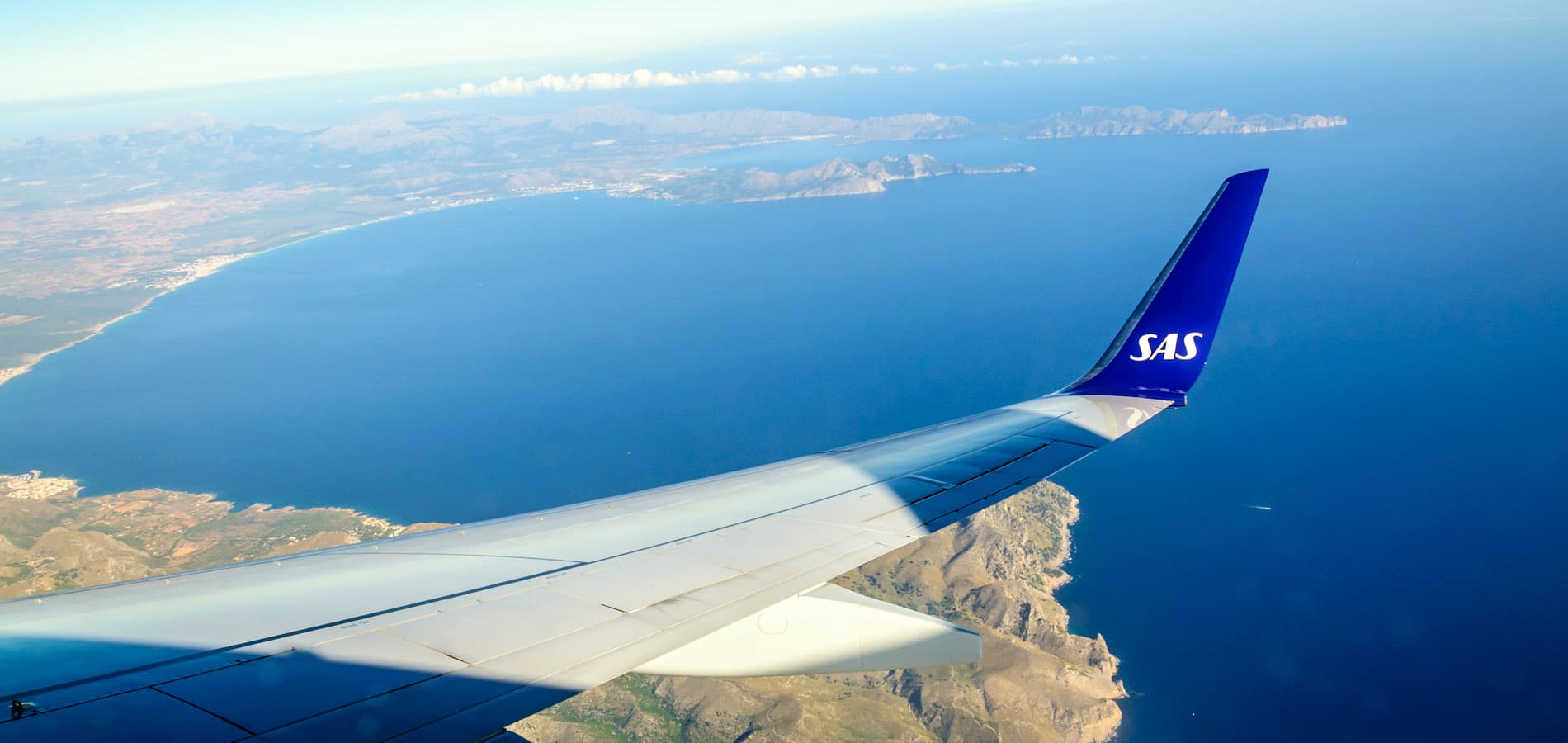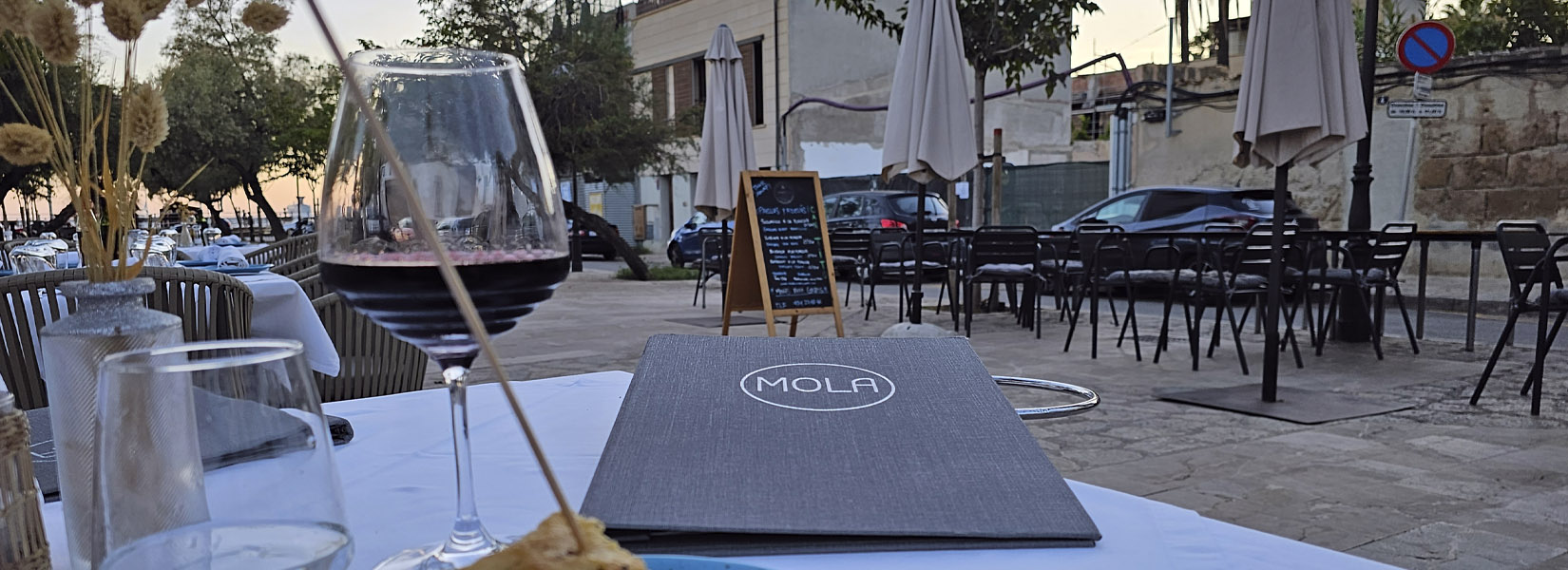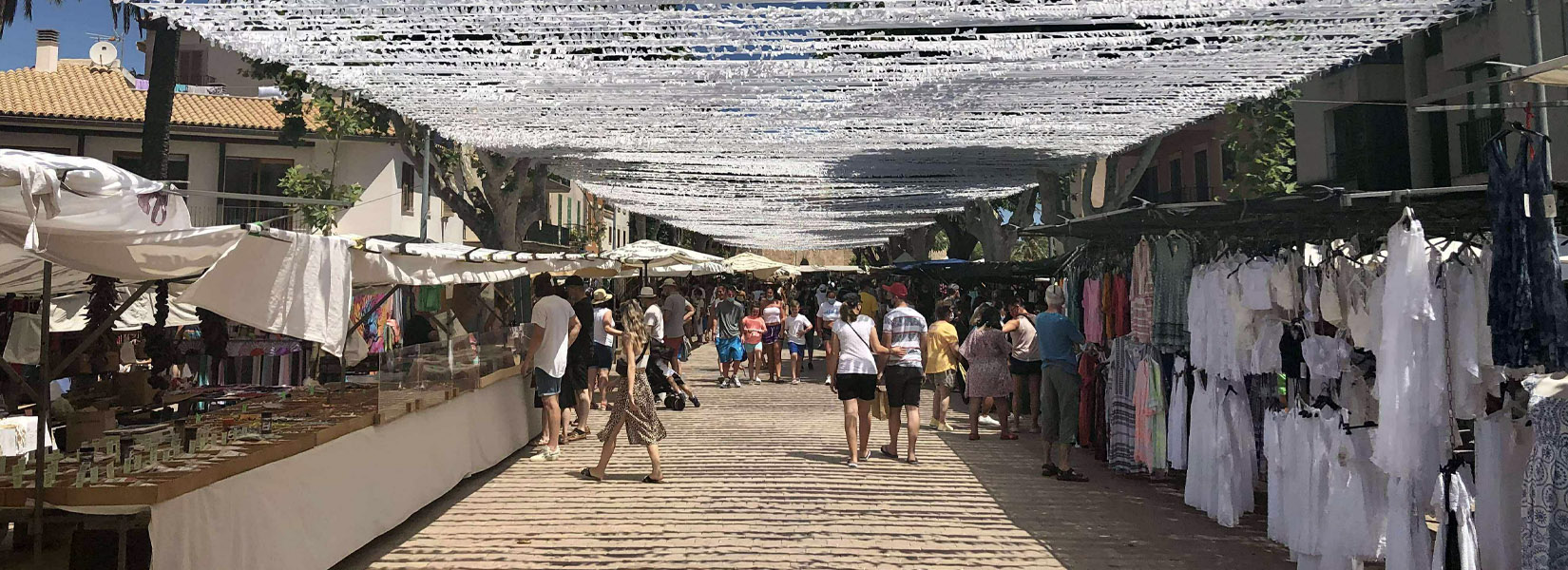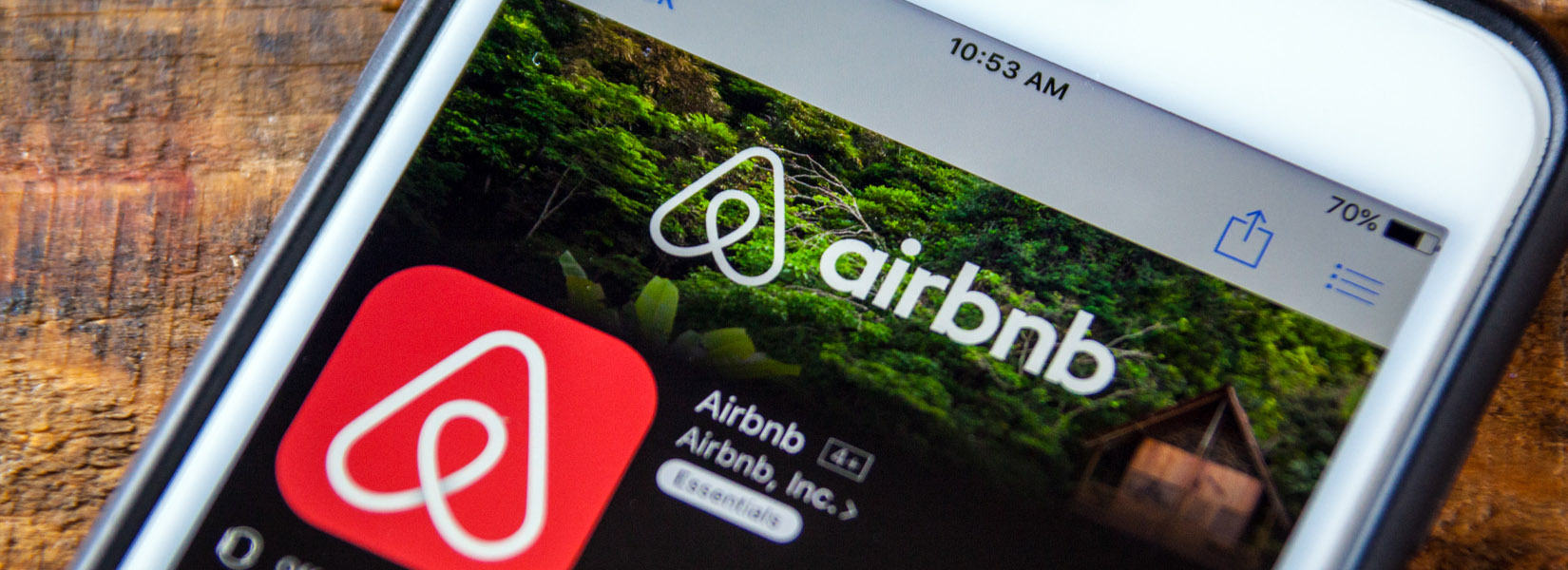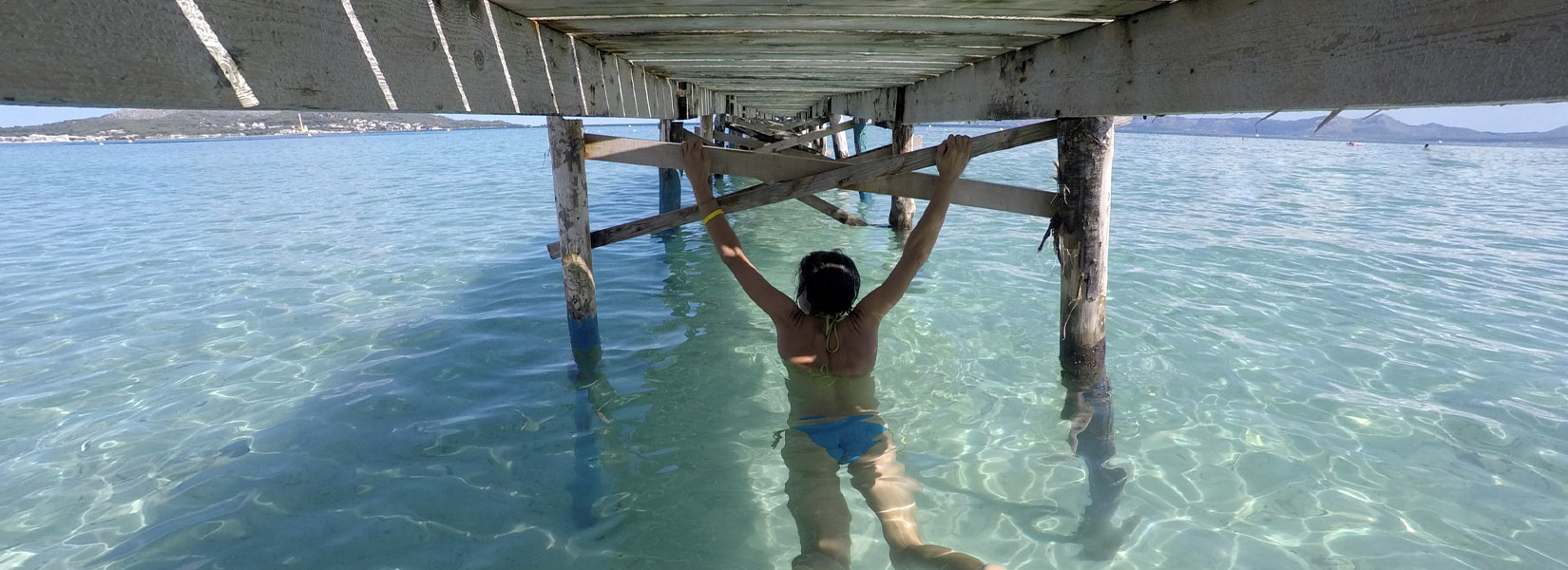A glimpse into tomorrow for Mallorca
How does Mallorca’s future look? If you visited the island 20 or 40 years ago, there’s no doubt you’ve seen significant changes. To remain an attractive holiday destination, Mallorca must continue to think visionary. Here’s a look into the crystal ball to offer our predictions on how Mallorca will evolve.
Planning a visit to the island? Book your stay in Mallorca at Palmallorca.com and see for yourself how Mallorca is thriving.
Please take a moment to watch the brief presentation in the video below:
The beginning of tourism in Mallorca
Mallorca’s tourism history is relatively recent. While the first “luxury hotel” (Gran Hotel) opened in Palma in 1903, mass tourism truly began in the 1960s. Hotels sprung up along the coasts, parties lasted for weeks, and affordable prices made it accessible to everyone.
Mallorca became a popular destination. Tourists returned home with suitcases full of cheap sandals, and the island was synonymous with fun. However, the influx of mass tourism also strained the island’s resources and tarnished its image.
Mallorca’s hangover
After the initial tourism boom, Mallorca experienced a backlash. The island gained a reputation as a party hub, known for wild celebrations and excessive drinking. In the 1990s, the government launched various initiatives to change this image, modernizing rundown hotels and demanding higher standards and more green spaces. The focus shifted to protecting nature and branding Mallorca as more than just a destination for sun, beach, and sangria. There was also increasing pressure to curb the excessive drinking holidays of young tourists.
Mallorca’s new face
In the 2000s, cycling tourism flourished as visitors discovered the island’s excellent routes. The maritime environment developed, with harbors expanding to accommodate more and larger yachts. Golf trips, walking holidays, cultural stays, and events became popular. Local producers of wine, food, and handicrafts emerged, meeting the demand for authentic Mallorcan experiences.
The introduction of the tourist tax “Ecotasa” aimed to fund environmental projects and protect the island’s nature and infrastructure. Time will tell if these funds are used effectively.
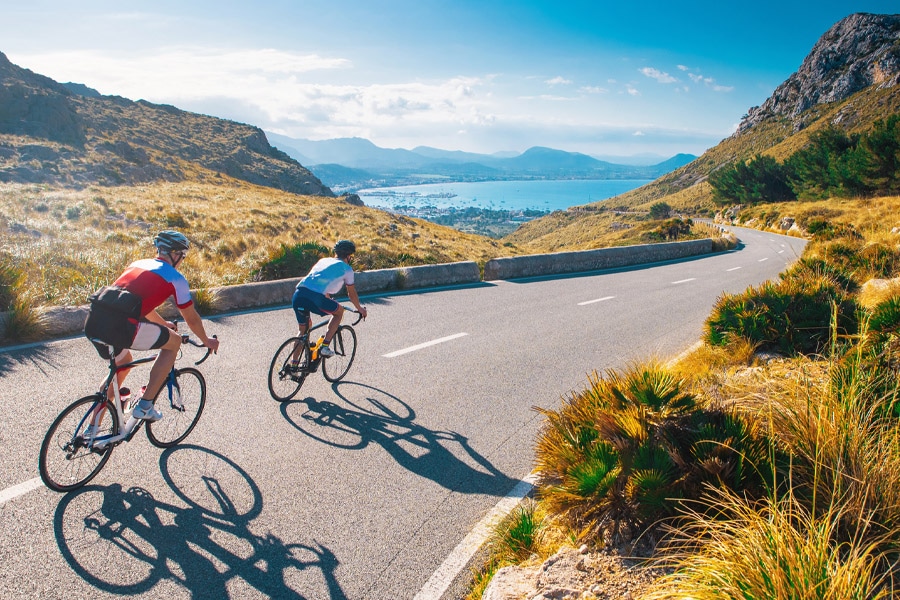
Is Mallorca’s future without tourists?
Movements are advocating for a tourist-free island. Protests in Mallorca have seen slogans like “Tourists go home” and “Tourism = Terrorism” as some locals express frustration over mass tourism’s impact on their quality of life and the environment. But the pandemic highlighted Mallorca’s reliance on tourism for economic stability, and the island’s well-being is intricately linked to tourism.
Mallorca’s tourism industry is a significant economic driver, with the island generating substantial revenue annually. In 2022, the Balearic Islands, including Mallorca, saw a total tourist expenditure of 17.3 billion euros, reflecting a 4.9% increase compared to 2019. This figure highlights the island’s strong recovery and growth in the tourism sector post-pandemic (Majorca Daily Bulletin) (Mallorca Global Mag).
Mallorca’s identity
Mallorca has reclaimed a strong, clear identity centered on its landscape, beaches, five-star accommodations, culture, gastronomy, and local products. These are the pillars the island aims to preserve and promote to attract both tourists and private investors.
A new vision for Mallorca’s future
Even with a regained identity, Mallorca continues to evolve. Future plans and strategies are in place to meet the changing demands of tourists. Large hotels with pools and buffets will remain, but future tourists will seek unique experiences. They will want to explore the authentic and scenic Mallorca and immerse themselves in well-preserved local culture, all while being mindful of their environmental impact. Thus, Mallorca’s future is geared towards sustainable tourism, active holidays, and a focus on local products.
The tourists of the future
Future tourists will seek high standards and unique experiences. They will want to support local businesses and protect the island’s natural beauty. Conscious of their ecological footprint, they will prioritize sustainability. Whether it’s shopping at local markets, enjoying a meal at a family-run restaurant, or treading lightly in nature, these tourists will be thoughtful consumers who demand quality and authenticity.
Year-round tourism in Mallorca’s future
The government is actively branding the island beyond its high-season appeal, promoting year-round tourism. Cycling tourism, yoga retreats, golf, hiking, climbing, and sailing are just some activities thriving off-season. Cultural holidays and business events also hold promise outside the high season. The mountains and countryside offer year-round immersion in nature, creative projects, or serene retreats.
Palma remains open all year, offering visitors a rich selection of culture, gastronomy, historic architecture, art, shopping, and luxury hotels.
The future of Mallorca’s water
Mallorca’s beaches will always attract visitors, but the Mediterranean’s ecosystem faces challenges. Government and volunteer efforts focus on maintaining the beaches and protecting marine life. Increased environmental awareness among the younger generation bodes well for the island’s future sustainability.
Water consumption, especially for hotels, pools, and irrigation, is a critical issue. Efforts to reduce water usage and treat wastewater are essential to ensure Mallorca’s beaches remain pristine.
Mallorca’s waste management
Spain is still growing in its waste-sorting efforts, but Mallorca offers many options for waste separation, with hefty fines for improper disposal. Reducing food waste and promoting recycling are priorities. Palma’s drinking water points encourage residents and visitors to use reusable bottles, reducing plastic waste.
Green transport and energy
Mallorca is transitioning to green public transport, with more city buses running on gas and other sustainable initiatives. Car rentals are shifting away from fossil fuels, aiming for a fully electric fleet by 2050. The Balearic Islands’ ambitious climate law underscores the commitment to green energy.
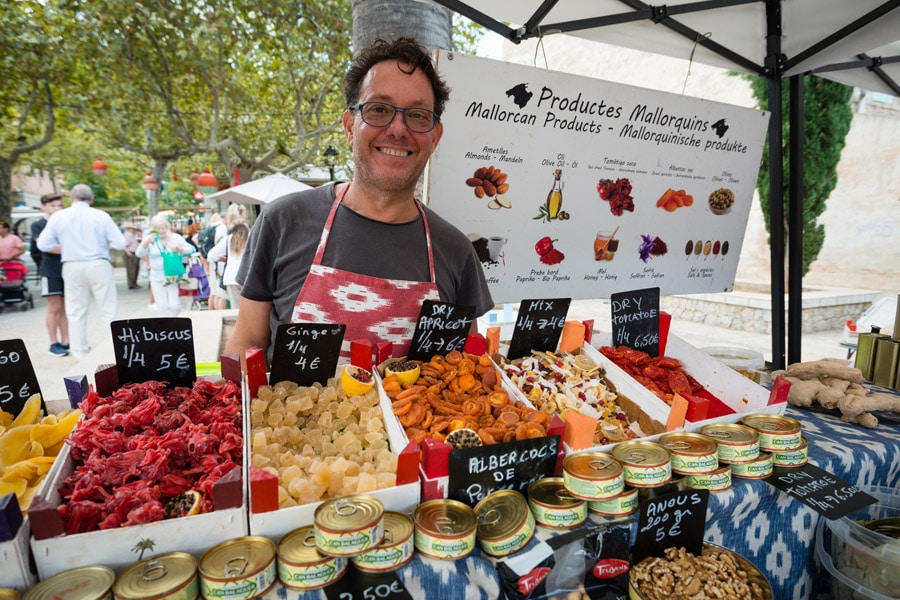
Food and wine: A part of Mallorca’s future
Mallorca’s wine industry, still relatively young, has immense potential. New wineries are established, and local wines gain recognition for their unique qualities. The island’s Michelin-starred restaurants and Mediterranean cuisine attract food lovers seeking authenticity and quality.
Mallorca’s immigrants
Mallorca attracts diverse residents, from the affluent to entrepreneurs. The island’s appeal, boosted by accolades like The Times’ 2015 designation of Palma as the best place to live, continues to grow. Private investments in real estate and businesses drive the local economy, fostering a market for high-quality goods and services.
The pandemic has made remote work more feasible, drawing more people to Mallorca. International schools and leisure activities for young people are in demand. The island’s rich culture and natural beauty make it an ideal place to live and work.
Keywords for Mallorca’s future
Mallorca’s future will focus on high-quality accommodation, local products, and sustainability. These elements will preserve the island’s charm and ensure it remains a beloved destination for tourists worldwide. The diversity of experiences offered will cater to a broad audience, securing Mallorca’s place as a top destination in the evolving tourism landscape.
Remember to explore our travel guides to Mallorca’s captivating destinations, from the vibrant city life in stunning Palma to the sun-soaked shores of Alcudia. Don’t miss the charming mountain villages of Sóller and Deià, where nature and tradition blend harmoniously. Also read about Golf in Mallorca, the wine spot Binissalem in Mallorca and lovely Port de Andratx.
Top picture for the article Visioning Mallorca’s future: © Artesiawells | Dreamstime.com



